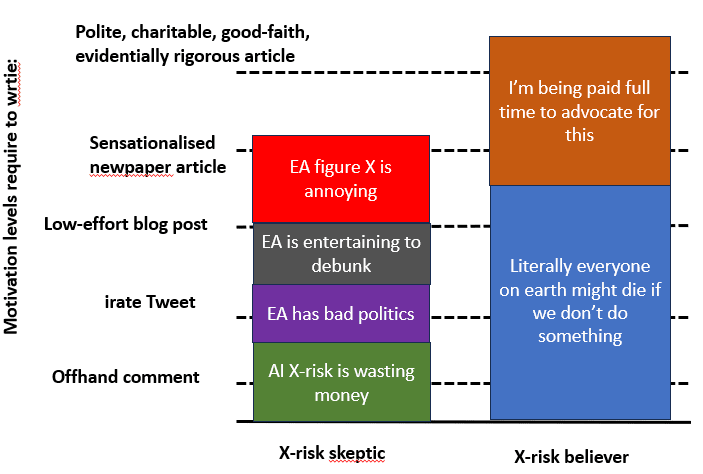Motivation gaps: Why so much EA criticism is hostile and lazy
post by titotal (lombertini) · 2024-04-22T11:49:59.389Z · LW · GW · 5 commentsThis is a link post for https://titotal.substack.com/p/motivation-gaps-why-so-much-ea-criticism
Contents
5 comments
5 comments
Comments sorted by top scores.
comment by ryan_greenblatt · 2024-04-22T20:36:29.975Z · LW(p) · GW(p)
I'm not sure that I buy that critics lack motivation. At least in the space of AI, there will be (and already are) people with immense financial incentive to ensure that x-risk concerns don't become very politically powerful.
Of course, it might be that the best move for these critics won't be to write careful and well reasoned arguments for whatever reason (e.g. this would draw more attention to x-risk so ignoring it is better from their perspective).
(I think critics in the space of GHW might lack motivation, but at least in AI and maybe animal welfare I would guess that "lack of motive" isn't a good description of what is going on.)
Edit: this is mentioned in the post, but I'm a bit surprised because this isn't emphasized more.
[Cross-posted from EAF]
comment by Nathan Young · 2024-04-23T09:44:45.686Z · LW(p) · GW(p)
Feels like there is something off about the following graph. Many people writing critiques care a lot. Émile spends a lot of time on their work for instance. I don't think motivation really catches what's going on.
Epistemic status: generating theories
I theorise it's two different effects in one:
- The voices we hear in the discussion (which links to yours)
- The norms of the communities holding those voices
First, as you say, the voices we hear most are the most confident/motivated, which leaves out a lot of voices, many of whom might talk in a way we'd prefer. Instead we only hear from the fringes, which makes a normal distribution look bimodal.
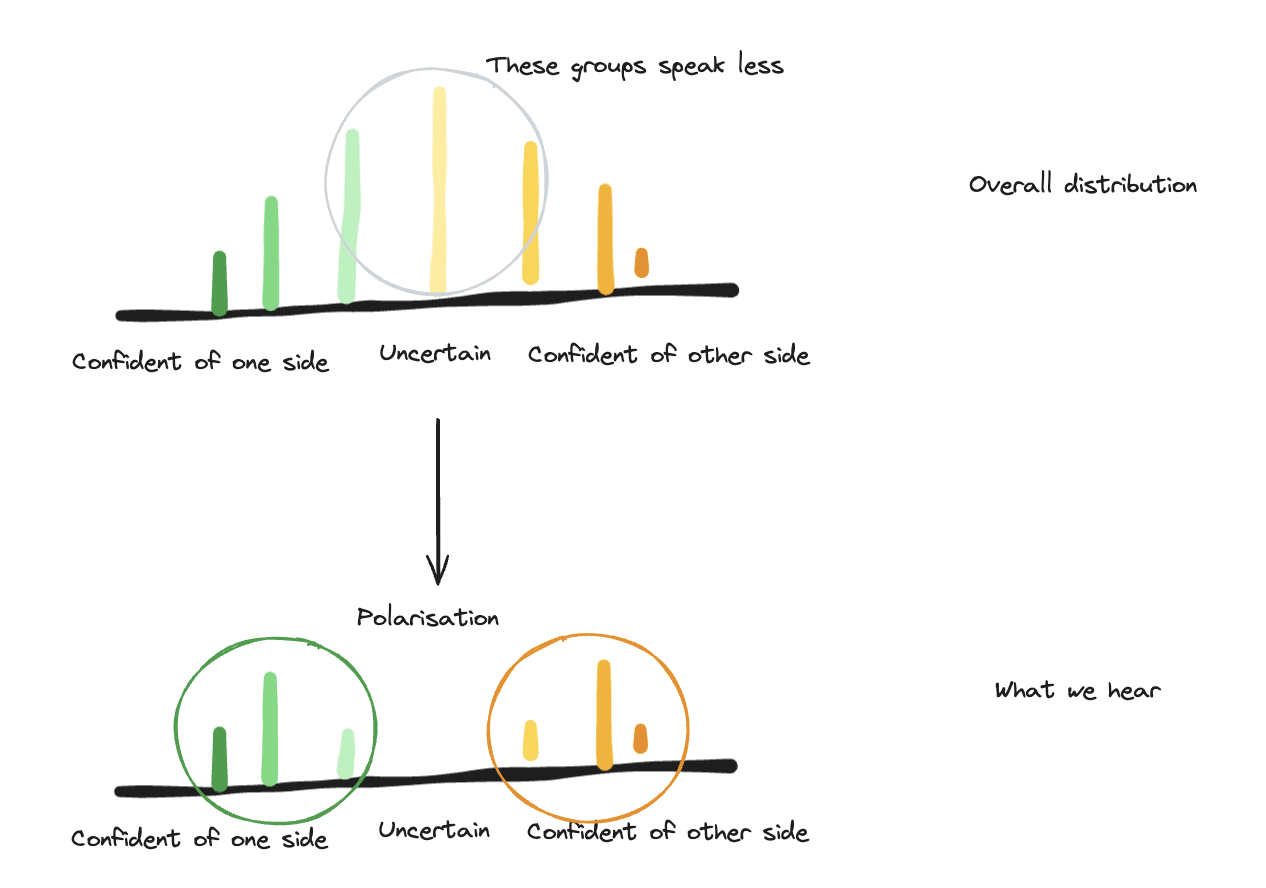
I wonder if this is more like supply and demand than your "bars" model. Ie it's not about crossing a bar but about supplying criticism that people demand. And correcting a status market - EA is too high status, let's fix it.
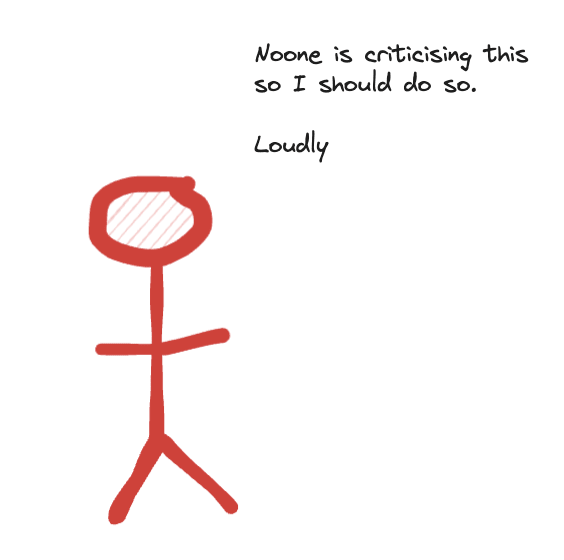
Secondly, the edges of this normal distribution have different norms. Let's say there are 3 areas:
- one likes steelmanning in disagreements
- one likes making clear to be on the side of minorities
- one likes being interesting
Let's imagine we are discussing something that has people from all these areas.
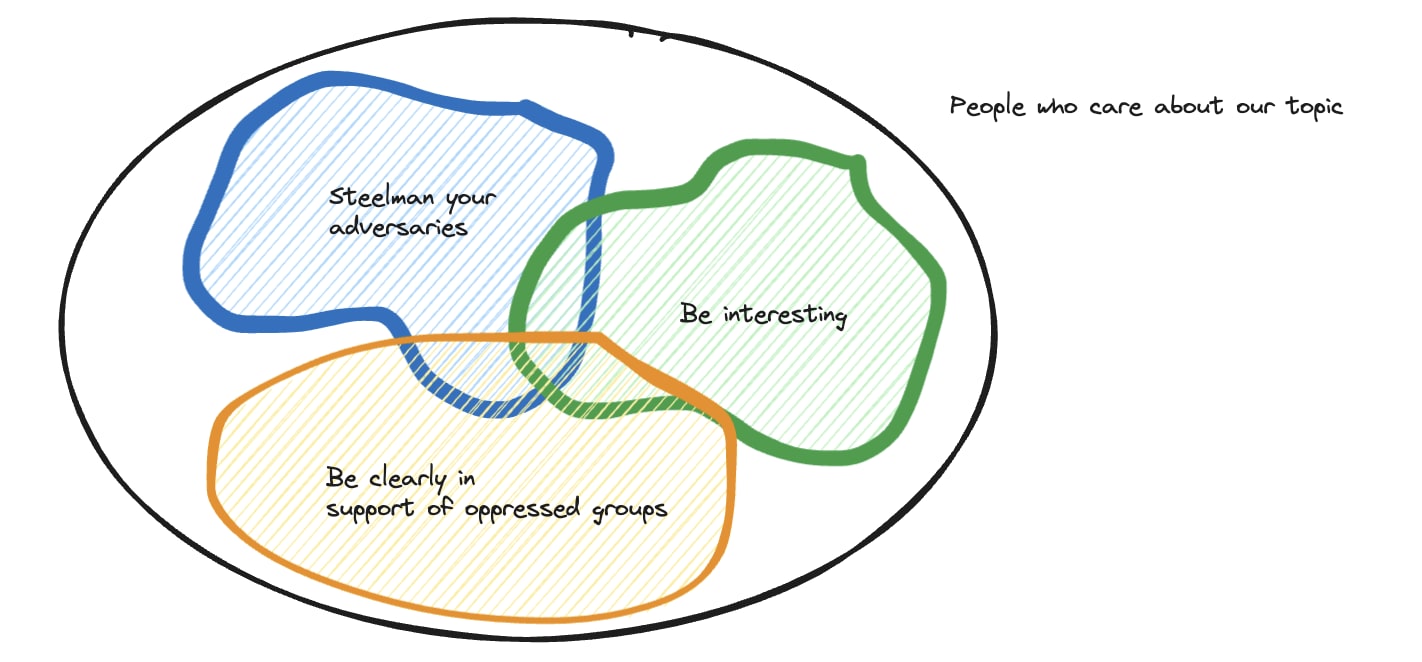
The people who like each of these things most strongly perhaps talk more, as in the above example. But not only do they talk more, they talk differently. So now the discussion is polarised in different languages, because the people in the middle are less confident and speak less (this jump feels like weakest step in the argument[1])
Amount of people with different views (central line is one group of people, who hold all views weakly)
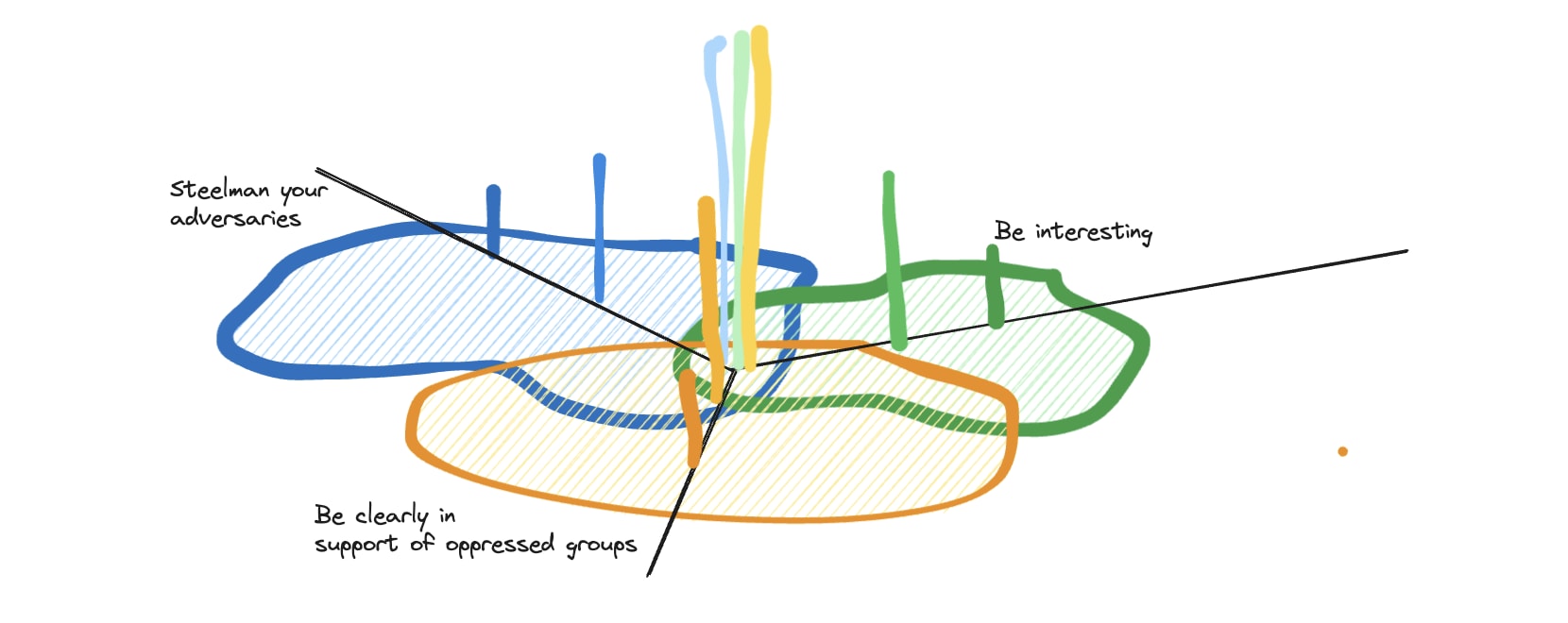
So now we have this:
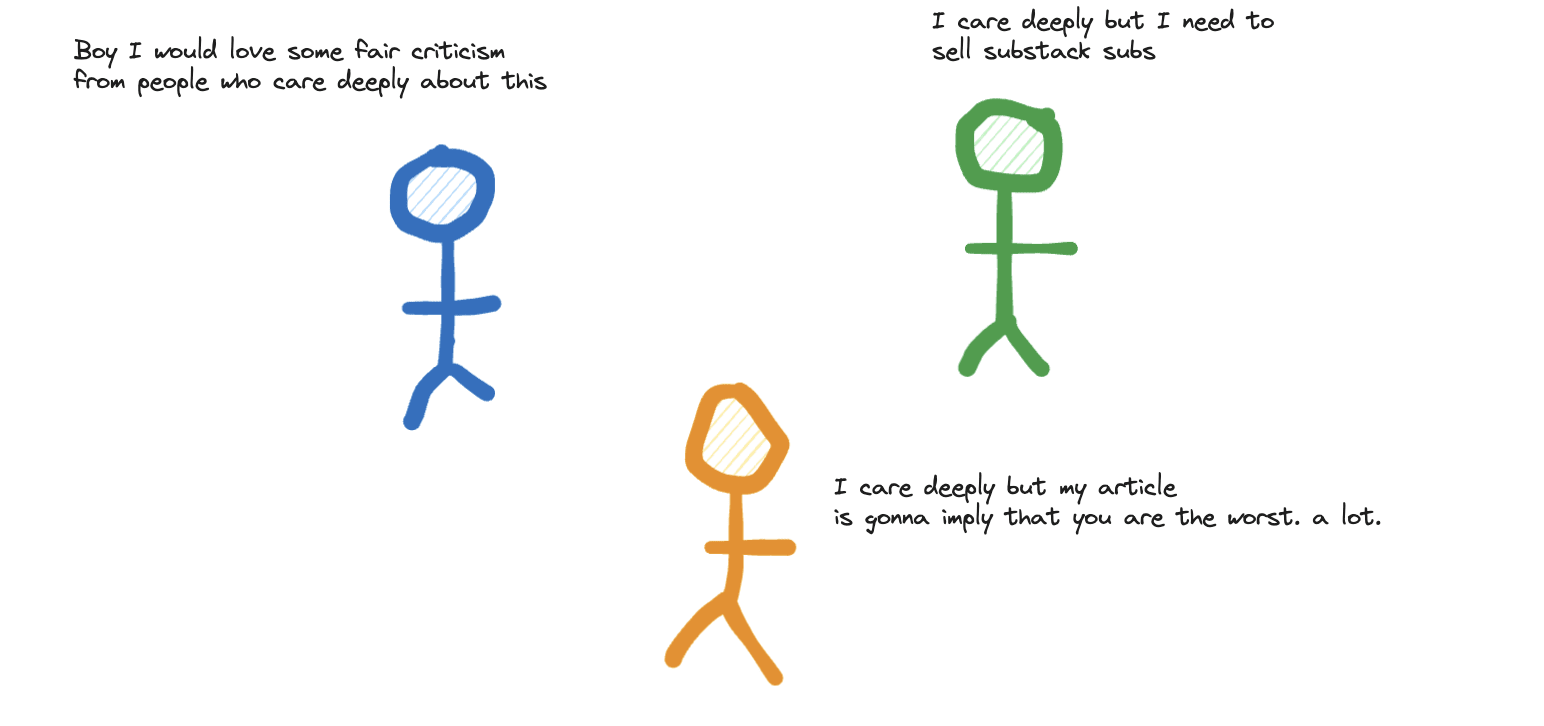
So I think probably my overall thing about why criticism is poor is something like "criticism looks poor to us because it isn't for us". It is for the people in the same communities by whom it is written. And probably to them our pieces look pretty poor as it is.
Some questions then:
- How do we respond in language that other groups will understand?
- Should we want to? Torres for instance seems to be a bit of a bully. But I'm not sure that makes their arguments bad. But if I were doing it they would definitely call me out for it.
- Is it worth taking time to really try and write the strongest versions of criticism in language we understand. Or find ways for people to signal confusion
- ^
Why should the people in each group talk most confidently? I dunno, but I hear a lot more from Yud, Alman, Adreeson and Torres than many more moderate voices. Feels like something is going on here. Can anyone suggest it?
comment by abstractapplic · 2024-04-22T20:15:51.908Z · LW(p) · GW(p)
Typos:
"Al gore"->"Al Gore"
"newpaper"->"newspaper"
"south park"->"South Park"
"scott alexander"->"Scott Alexander"
"a littler deeper"->"a little deeper"
"Ai"->"AI"
(. . . I'm now really curious as to why you keep decapitalizing names and proper nouns.)
Regarding the actual content of the post: appreciated, approved, and strong-upvoted. Thank you.
comment by Nathan Young · 2024-04-23T09:51:19.527Z · LW(p) · GW(p)
Good article.
It's an asymmetry worth pointing out.
It seems related to some concept of "low interest rate phenomenon in ideas". Sometimes in a low interest rate environment, people fund all sorts of stuff, because they want any return and credit is cheap. Later much of this looks bunk. Likewise, much EA behaviour around the plentiful money and status of the FTX era looks profligate by todays standards. In the same way I wonder what ideas are held up by some vague consensus rather than being good ideas.
comment by metachirality · 2024-04-22T12:52:57.835Z · LW(p) · GW(p)
This feels like Scott Alexander could've written something about, and it has the same revelatory quality.
